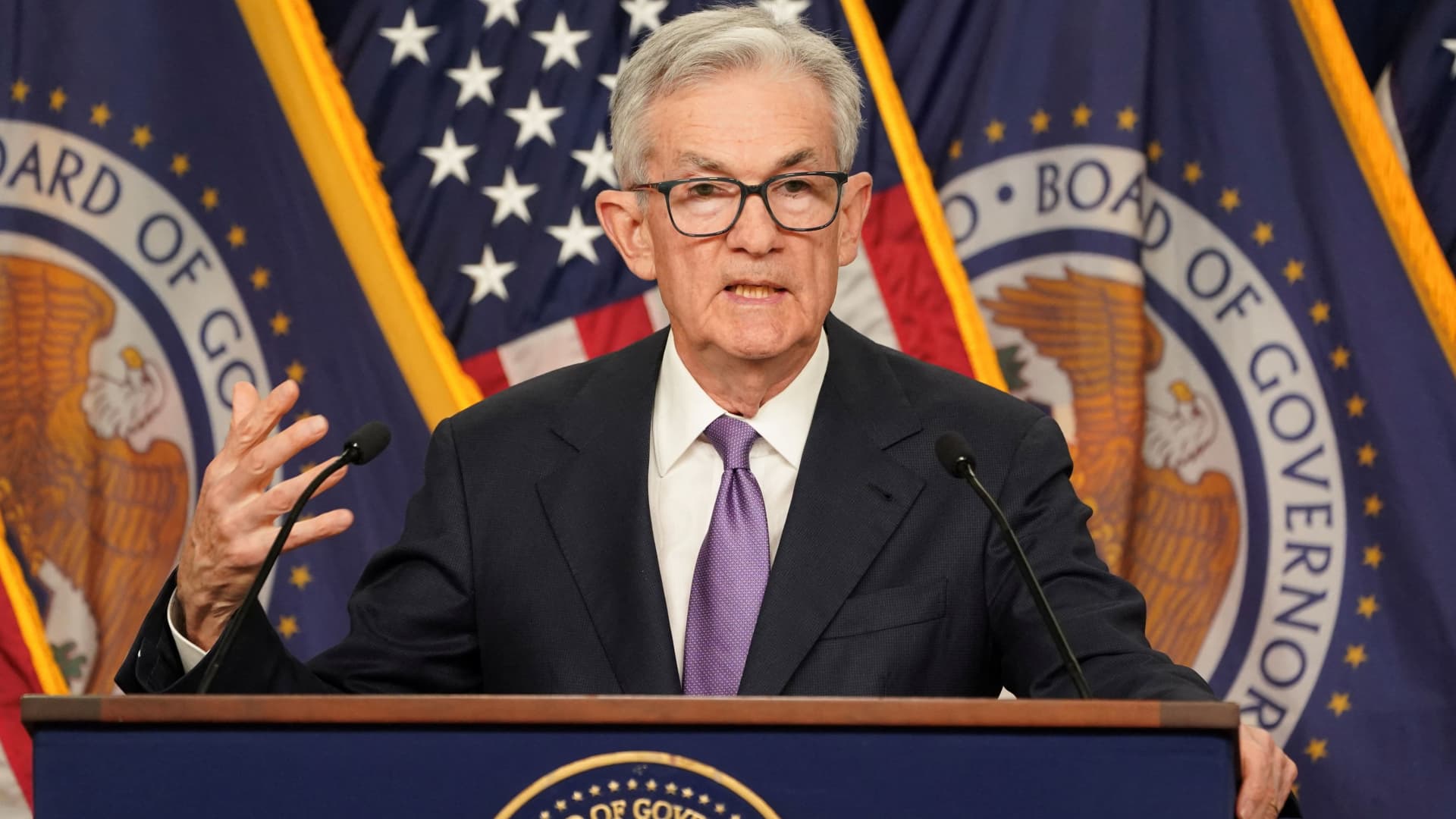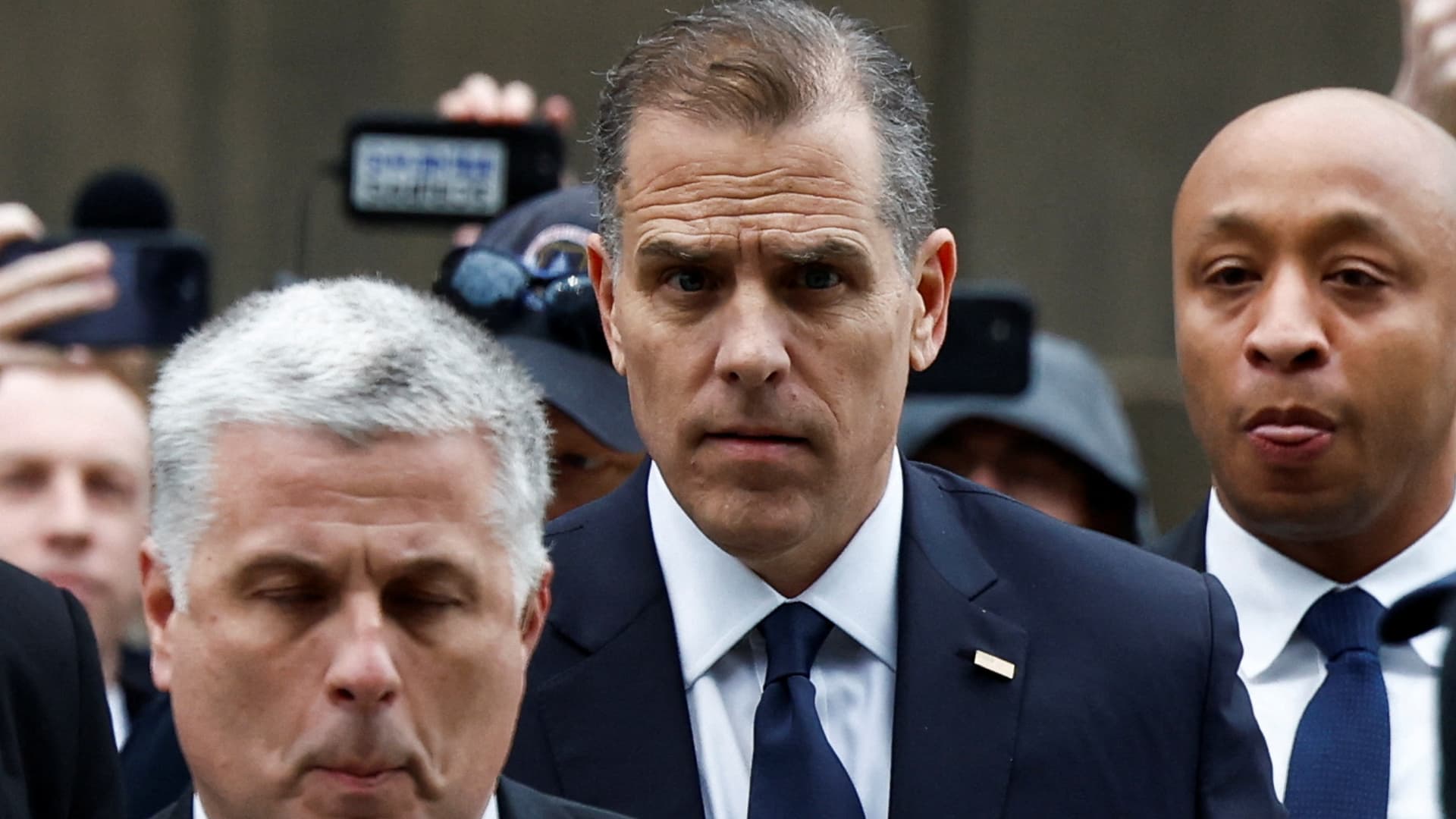
The Ripple cryptocurrency is seen in this illustration photo taken in Krakow, Poland on June 4, 2021. (Photo illustration by Jakub Porzycki/NurPhoto via Getty Images)
Jakub Porzycki | Photo only | Getty Images
WASHINGTON — A super PAC funded by top crypto companies claimed multiple victories in congressional primaries on Tuesday night, the latest in a string of victories by the newest big player in American election finance.
Fairshake PAC, which supports candidates across the political spectrum whose positions align with those of the crypto industry, will enter the general election campaign with more than $100 million to spend on electing pro-crypto lawmakers to the House and Senate want.
On Tuesday night, Rep. Jamaal Bowman, D-N.Y., lost his primary to Westchester County Executive George Latimer. Bowman’s loss was due in part to his vocal criticism of Israel. But Crypto’s Fairshake PAC also entered the race, spending $2 million to air an ad critical of Bowman.
Fairshake and its two affiliated PACS, one for Republicans, one for Democrats, quietly picked up a half-dozen more victories Tuesday as the candidates they supported swept away, even though neither race was competitive. Among them was Rep. John Curtis, who won the Republican nomination for the open Senate seat in Utah.
U.S. Representative Jamal Bowman (D-NY) meets with TikTok developers at a press conference to speak out against a possible ban on TikTok in the House of Representatives at the U.S. Capitol in Washington on March 22, 2023.
Evelyn Hockstein | Reuters
Founded last year as part of a joint effort by more than a dozen crypto firms, Fairshake PAC has become one of the top-spending political action committees in the 2024 election cycle.
According to AdImpact, Fairshake and its two affiliated PACs have poured more than $37 million into advertising in primary races so far.
Despite its broad mission to defend the entire $2.2 trillion crypto market, Fairshake is funded by a very small group of donors.
Of the $160 million in total donations Fairshake has raised since its inception, around $155 million – or 94% – can be traced to just four companies: Ripple, Andreesen Horowitz, Coinbase and Jump Crypto.
But it’s not just money that the crypto industry plans to deploy this fall. The nonprofit Stand With Crypto says it has collected more than 1.1 million email addresses of crypto “advocates” it wants to engage with all the way to the ballot box.
The strength of crypto groups is being felt on Capitol Hill, particularly among lawmakers facing difficult elections next year where a few thousand voters or a large donation could make a difference not only in the race, but also in the Question which party controls each chamber.
Ripple CEO Brad Garlinghouse said this was a “pivotal moment” for crypto and that having an “organized, coherent effort around Fairshake” made a difference.
“This is an industry that is lagging behind in Washington and has really become defensive,” Garlinghouse told CNBC.
Ripple CEO Brad Garlinghouse speaks during the CoinDesk 2022 Consensus Festival in Austin, Texas, USA, on Saturday, June 11, 2022.
Jordan Vonderhaar | Bloomberg | Getty Images
The effort is also intended to showcase a mature crypto industry. After the rise and fall of Sam Bankman-Fried, who paid out millions in the 2022 midterms, crypto groups are presenting themselves as more serious players.
Faryar Shirzad, Coinbase’s chief policy officer, who worked at both the White House and Goldman Sachs, said the industry has recognized the need to not only engage lawmakers but also coordinate with crypto and blockchain owners to improve their to increase political influence.
“We came to the funny realization that the only way to get politics out of crypto was to build a political operation that levels the playing field.”
He also said the group is leveraging what he sees as a grassroots movement to “involve Americans who own cryptocurrencies in the process.”
In the coming months, the group plans to spend money not on the presidential election, but rather on the House and Senate – both of which are at stake next year.
Fairshake has not yet begun spending in the general election cycle, but several industry officials said they are eyeing states like Ohio and Montana, where Democratic incumbents who are bearish on cryptocurrencies face challengers who have embraced the technology have.
In Ohio, Senate Banking Committee Chairman Sherrod Brown, an outspoken crypto skeptic, is running against Republican Bernie Moreno, who founded a blockchain startup.
In Montana, Republican challenger Tim Sheehy has called crypto “the future of finance and the internet.” Meanwhile, incumbent Democratic Senator Jon Tester told “Meet the Press” in 2022 that crypto “failed the smell test.” He also reportedly referred to cryptocurrencies as a “bull market,” according to Semafor.
But as Tester wages one of the toughest re-election battles in the Senate, his stance on crypto appears to be changing.
Tester told reporters that he is open to several crypto bills coming to the Senate.
“This is 21st century stuff,” Tester told reporters at the Capitol on June 12. “I also thought fax machines were nonsense.”
This changed mindset was also reflected in the votes. Tester was one of 11 Democrats who voted to repeal SEC guidance on crypto that has been criticized by the industry.
Sen. Jon Tester (D-MT) responds to reporters’ questions about Judge Brett Kavanaugh’s nomination to the Supreme Court after a woman accused Kavanaugh of sexually assaulting her 36 years ago while riding the subway in September of the US Senate on Capitol Hill goes on 18th 2018.
Fresh Mike | Reuters
Democratic Senators Bob Casey of Pennsylvania and Jackie Rosen of Nevada, who also face tough re-election battles, voted for the bill.
In the House, Rep. Elisa Slotkin, D-Mich., who is running for a vacant Senate seat, voted for both the repeal of the SEC guidance and another bill to establish a market structure for digital assets.
However, it remains to be seen how big a role crypto will play in November’s election and how many votes will ultimately be influenced by candidates’ positions on crypto.
An annual survey released in May by the Federal Reserve found that about 7% of Americans have owned or used crypto in the past year, or about 18 million adults. This value is five percentage points lower than the value of the same survey from 2021.
Issues like the economy, immigration and abortion affect an order of magnitude more people than cryptocurrencies. In fact, the industry’s political advertisers seem to be aware of the relatively small circle of crypto users.
Ads funded by Fairshake convey messages that are typically less about candidates’ support or opposition to cryptocurrencies and more about broader issues that resonate with voters, such as fairness and integrity.
During the California primary season, a Fairshake ad targeted California Rep. Katie Porter as a “fake” and attempted to link her to a corrupt company. Fairshake spent $9.7 million on the race.
Porter ultimately lost to Rep. Adam Schiff of California, who is widely considered more crypto-friendly than Porter.
Source link
2024-06-26 16:29:51
www.cnbc.com













